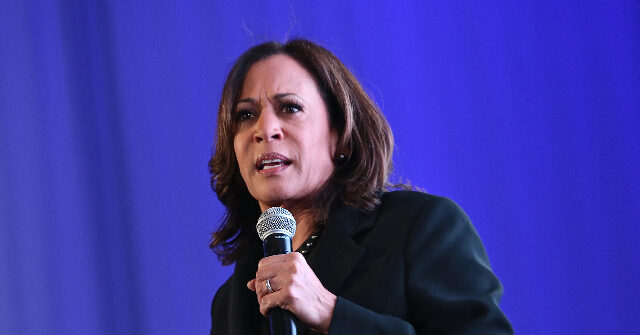Kamala Harris’s recent appearance at the BET Hip Hop Awards highlighted her struggle to connect with black male voters, an area where she has been criticized as underperforming. During her two-minute conversation with hosts Fat Joe and Too Short, she attempted to pivot from negative media portrayals by focusing on the theme of “misinformation” in politics. Harris emphasized the importance of voting, encouraging people to recognize their power in shaping the country’s future. She expressed concerns that misinformation might lead individuals to believe their votes do not matter, emphasizing that every vote counts in a democratic society.
Despite her call to action, some of her comments raised eyebrows, particularly her description of former President Donald Trump as “weak.” This characterization is curious, given the general perception of Trump as someone known for his combative political style and vigor. Harris’s critical remarks about Trump underscore her strategy to galvanize support by painting a stark contrast between her administration’s values and those of her opponents. However, her choice of words may have been perceived as lacking insight into her rival’s image, which could detract from her credibility among potential voters.
As she grapples with the challenges of appealing to black male voters, recent comments from former President Barack Obama have further complicated matters. Obama publicly criticized black men for their perceived sexism, drawing a line between demographics and the political support they lend to female candidates. This commentary not only reinforces the narrative of Harris’s struggles but also highlights the larger issues of gender and race within political dynamics that could sway the vote among critical segments of the population.
To address her perceived shortcomings, the Harris campaign has rolled out new initiatives aimed specifically at black male voters, including proposals to legalize marijuana. This pivot to more progressive social policies signals an acknowledgment of past criticisms she faced as California’s Attorney General, where she oversaw numerous marijuana-related convictions. The legalization proposal suggests a transformation in her approach, aiming to resonate more with voters who may see these issues as central to their communities and experiences.
The emphasis on legalizing marijuana can be interpreted as an attempt to confront historical injustices related to drug enforcement that disproportionately affected black communities. Harris’s acknowledgment of these past conflicts may serve as a strategic move to reconcile her history in law enforcement with current social movements advocating for criminal justice reform. By adopting this narrative, she hopes to mitigate the distance between her past actions and her present aspirations, thus winning the support of voters who previously felt alienated.
In conclusion, Kamala Harris’s appearance at the BET Hip Hop Awards highlights the dual challenges she faces: rallying black male support and effectively countering misinformation in the political narrative. While her strategic move towards relevant social issues such as marijuana legalization may boost her appeal, the fierce external criticism from figures like Barack Obama underlines the complexities within the voter demographic she desperately seeks to engage. As she navigates this terrain, the effectiveness of her message and proposals will ultimately determine her ability to consolidate support in a critical election year.

